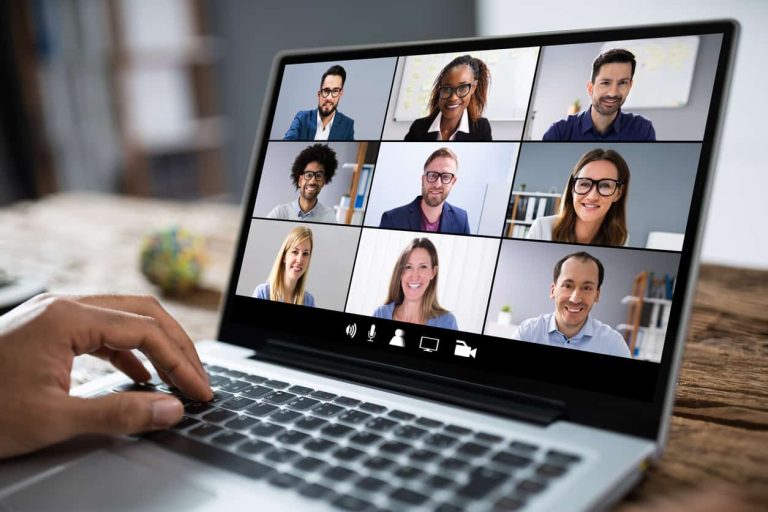Michał Janas of the softgarden team met with expert HR Adrian Martinez for this online summary. The following text, is a brief summary of their conversation at our last webinar.
Economic situation and labour market
There is no denying that the year 2020 has brought surprising changes in the labor market for everyone – not only in Poland, but all over the world. Wave after wave of pandemic austerity measures, a reduction in the activity of individual sectors of the economy with a simultaneous increase in demand for labor in several industries are events that no one had previously anticipated. Unfortunately, a pessimistic perception of the economic situation prevails among Polish entrepreneurs today – the 42nd autumn edition of the Randstad survey “Employers’ Plans” recorded a record low (compared to recent years) optimism index of entrepreneurs, which was -58. For comparison, it reached a level of +25 in May 2018. The assessment of the current situation of businesses also deteriorated significantly: In the last survey, only 48% of organizations declared that it is good or very good. A year ago, such an answer was given by 64% of them.
It is worth noting that the unemployment rate in Poland has been stable for several months, reaching the same level in November as in June, i.e. 6.1%. What are the employment plans for H1 2021? They are quite optimistic considering the current situation – 70% of companies plan to maintain the current level of employment and 17% plan to increase employment. On a positive note, the OECD forecasts an upturn in the global economy from 2021, but the extent of this will depend on the degree of control of the epidemic and the success of the vaccination programme.
Not surprisingly, the current period can be described as a time of uncertainty for both employers and employees. Deciding whether to expand one’s team, even if the need exists today, is as difficult as deciding to change employers when one has tenure.
And how has the pandemic situation affected employee expectations? Adrian Martinez cites the result of the Kantar study: Covid Barometer 2019, according to which as many as 82% of respondents believe that companies should care first and foremost about the safety of employees, and 78% think they should also care about their health. According to the MJCC study “Employer Brand in the Face of the Pandemic”, as many as 55% of people expect the company to support them emotionally.
“It is worth noting that further action has resulted from these expectations in conscious companies. This is how I think it should look. Looking at these results is such a first point to draw conclusions on how to adapt the corporate strategy towards employees and candidates to the new reality in which we all find ourselves,” comments Adrian Martinez. According to the expert, the current times also require more action on the part of CEOs and company boards, as it is precisely from them that employees expect initiative in times of crisis. Therefore, especially in the first half of the year, companies that took care of, for example, a corporate status led by the CEO and regular corporate meetings with updates on the impact of COVID were particularly appreciated. “The pandemic has rendered the earlier list of top benefits obsolete – because what matters most today is the security and stability of the company, the transparency of its communications, and the confidence it has in its leaders. And these factors are what determine whether an employer is perceived as attractive by employees,” Martinez adds.
Recruitment in uncertain times
Despite the difficult situation on the labour market, many companies continued to hire employees in 2020. However, this proved to be more difficult than before, simply because they had to make the technological leap and fully digitise processes. For many companies, this was a complete novelty. And the transition to the digital world extended not only to the actual recruiting contact with applicants, but also to everything that precedes it.
The touchpoints between a company and a candidate that allow it to gain the candidate’s trust in difficult times have become more important. Among these, the career site occupies an important place – as that place on the Internet that should contain the answers to all the questions that may arise for the job prospect. It is now the company’s most visible business card on the web, and at the same time a place that is completely managed by the organisation, i.e. where it has full influence on the published content. For this reason alone, it is worth ensuring that it is relevant, reliable and up-to-date. The catalogue of materials that should be found on the careers page, i.e. job vacancies, data about the company and the team, the recruitment process guide and benefits package, photos and videos, should be published along with the organisation’s response to the situation from COVID along with a full set of information for the candidate. This enhances the credibility of the company and increases trust in the company.
Complete, informative job postings and an efficient application system work in the same direction. Candidates want to see that the company is prepared for online recruiting and has procedures in place to make the process quick and efficient.
Of course, we can’t forget the power of referrals, which only become more important in tough times. There is no more reliable information for a candidate than the rating given to a company by candidates and employees, and no more valuable source of a job offer than a recommendation from a friend. It’s worth remembering that the presence or absence of recommendations is the best tester of a company’s actual image as an employer and whether the work within it is perceived as attractive by employees. If this is not the case, even the best bonus system for a recommendation is not much use.
“When I talk to my clients about candidate touchpoints, I also make them aware of what else we have before the careers site – especially social media. We can’t forget about them, and I look forward to all of us being more strategic about employer branding online in 2021. Employers’ social media presence should be the result of good thought about what a candidate needs from them, not an ad hoc activity,” says Adrian Martinez. “I always recommend starting by thinking about what content and formats are appropriate at each stage of the audience’s contact with the brand. Social media is extremely useful at three stages: to build brand awareness, to pique a candidate’s interest, and to encourage them to apply. But even if a person has already decided to apply, we can keep going – reassure them that they’ve done well and try to get them to stay in the process without hesitation. In a challenging year like 2020, it only becomes more important to reach out and hire the candidates who are actually a good fit for the company’s needs, and social media allows us to be very precise” – the expert concludes.
Trends for 2021
What does Adrian Martinez, think will become increasingly important in the next year? During our webinar, he highlighted a number of areas that he believes will determine the competitive advantage of companies if used correctly.
He included:
- Remarketing and its use to build candidate paths and optimise recruitment efforts
- The use of video formats in candidate communications with a focus on quality and originality of content
- The greater involvement of employees in employer brand communications
- The use of the potential of digitalisation in employer branding activities.
And what will the year 2021 look like in the world of HR? It’s the kind of year we go into without confidence that we can predict what will happen in the next 12 months. Certainly, many of the concerns and challenges of this year in the job market will be with us for a while. The digitisation of recruitment processes and approaching candidates in the online world are developments that are likely to be with us forever. What we can do is prepare for this as best we can by assessing the quality and effectiveness of what we have done so far.
softgarden: Thank you to Adrian Martinez for participating in our webinar and contributing to the summary above.
Cooperation with an expert:

Specialization: Employer Branding & Recruitment Marketing
Consultant, trainer and practitioner with many years of experience in the marketing and HR industry. He trains and consults on Facebook, Instagram and LinkedIn communications and advertising, as well as online brand presence strategies. He designs and consults Employer Branding strategies and recruitment processes from the communication side.
Enthusiast of building and growing engaging online communities. Founder of the most active HR group on Facebook – I love HR.








